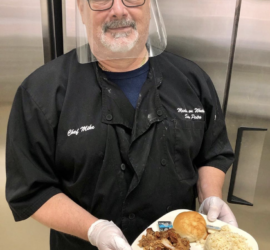Food, Glorious Food, at Your Doorstep by Vickey Kalambakal August 11, 2021 Where do your meals come from, if you don’t cook them yourself? You can stock your freezer with frozen food, but those meals aren’t fresh. You can phone your favorite bistro and have them deliver – as an everyday practice, though, that gets expensive (and may not be so healthy). But we all have to eat! So what are your other options? Pretty vast, actually. These days, a wide range of meal delivery services stand ready to ensure that you get nutritious food when you need it. All sorts of companies are willing to send you prepared meals that you just heat and eat, and some are quite inexpensive.We’ll list the not-for-profit services first. Meals on Wheels sets the standard, delivering meals to those who are homebound. A nationwide network with affiliates in almost every community, Meals on Wheels delivers two meals a day, Monday through Friday. Prices vary, but because Meals on Wheels depends on volunteers to get the meals out, most charge around only $7 to $9 a day for both meals. Most Meals on Wheels branches operate independently. Some can accommodate special diets, for diabetics or vegetarians, for example. Some have strict criteria to qualify their customers, some don’t. Thanks to donations and grants, some (not all) serve customers who can’t afford to pay. Other groups offer a similar service. In Los Angeles County, Project Angel Food brings meals to those with serious illnesses at no charge. In some areas the Salvation Army or local Senior Centers deliver meals. To find out what’s available in your community, search the web (Google, DuckDuckGo, Bing, etc) or call your local Senior Center or Chamber of Commerce. Check with your Medicare Advantage Plan (Medicare Part C) or other insurers […]





